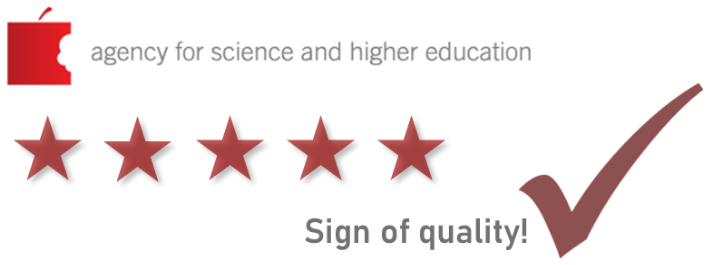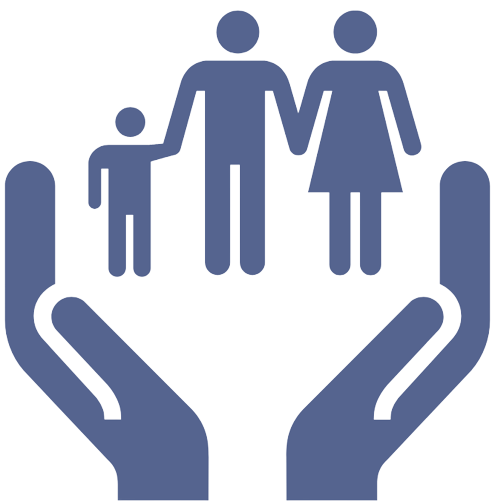

The Report on the Re-accreditation of the Faculty of Law in Osijek (December 2021).
“The undergraduate and graduate study programmes of Social Work connect the theoretical aspect of teaching with practical work that represents a fundamental dimension within their curriculum, and is the backbone for acquiring the necessary competencies for social work in the community. Both of these programmes bring practice to students in a systematic and responsible manner.”
“The Panel appreciates the very good cooperation with employers, professional organizations, judicial institutions, civil society organizations and the alumni on the development of study programmes and individual courses of the Social Work.”
“Involving social work students in community work presents an excellent and exemplary project from the perspective of the high education institution’s social role.”
Our MSW students are trained to work and promote individual, family and community wellbeing in the twenty-first century complex environment. Our faculty is committed to meeting the needs of Slavonian communities by offering educational program preparing master social workers to work with the past, build on the present, and focus on the future of local communities keeping excellence, expertise, inclusion, community partnership and social justice as underpinning key values of this MSW. The curriculum is competency-based, “ensuring students’ assessments are based on their knowledge, values, skills and cognitive and affective processes that includes social work’s critical thinking” (the Educational Policy and Accreditation Standards, 2015).
Our MSW program promotes a global perspective having faculty teaching in our program from Indiana University School of Social work and the University of Ljubljana. Their active engagement in international social work education and practice will provide stimulating classroom discussions, opportunities for research and international collaborations, and valuable career support.
Courses are taught through lectures, exercises and seminars. Students are required to have 800 hours of field education in the second year of study. Throughout the study, students are required to take three elective courses. Graduate classes are taught in intense tours/blocks.
Learning outcomes
Upon completion of the MSW from the Faculty of Law University of Osijek, the master graduates shall be able to:
1. Demonstrate professional behaviour in all professional settings.
2. Engage in ethical conduct in all professional work.
3. Advance human rights, social, economic and environmental justice.
4. Engage in policy practice that promotes human and civil rights in a just society. This includes public/e-counselling, policy analysis,
policy development and advocacy practice.
5. Integrate multidisciplinary knowledge in social work practice to enhance individual, family and community wellbeing in a global
landscape.
6. Engage individuals, families, groups, organizations and communities with cultural humility and open-mindedness.
7. Utilize the assessment of individuals, families, groups, organizations and communities to guide practice and to improve policy
and service delivery.
8. Intervene with individuals, families, groups, organizations and communities to guide practice and to improve policy and service
delivery.
9. Evaluate one’s own practice as well as research findings, organization policies, social policies, plans and interventions.
10. Use community-based research methods and management skills to assess the context of work, engage multilevel stakeholders
and effectively advance social work practice and its problem solving capacities.
11. Use research methods in working with individuals, families, organizations and groups to evaluate the effectiveness of social
work practice.
12. Engage in public discourse about the social work profession with its challenges as well as its opportunities.
13. Engage in social work practice that holds as a fundamental premise the strength of diversity and inclusion in local, national and
global communities.
14. Engage with civil society organizations, across public and private sectors.
15. Apply legal documents that further human rights and support professional social work practice.



